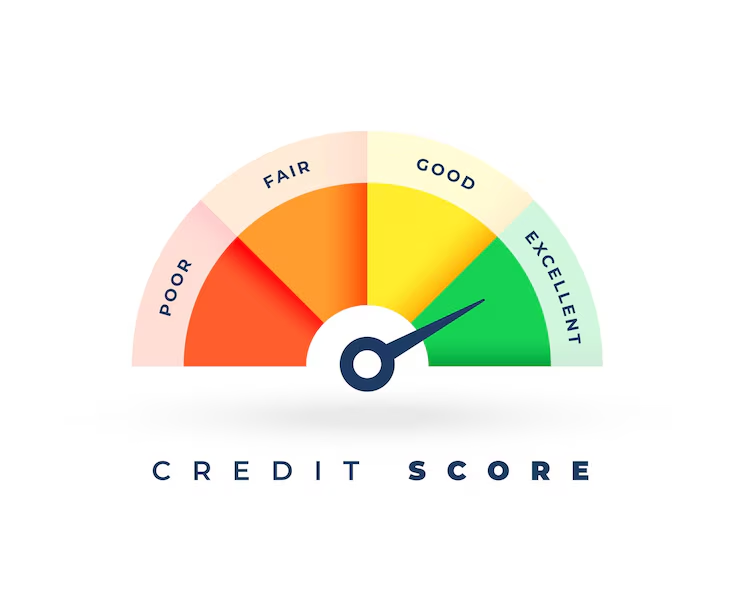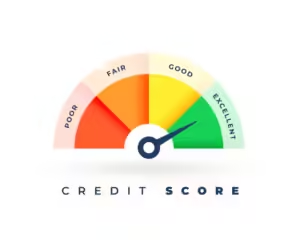Credit score improvement can seem like a daunting task. However, with the right strategies, you can make significant progress. A good credit score opens doors to better financial opportunities, lower interest rates, and favorable loan terms. Therefore, understanding how to improve your credit score is essential. Here’s a comprehensive guide to help you navigate this important aspect of personal finance.
Understand Your Credit Score
First and foremost, it’s important to understand what a credit score is. Your credit score is a numerical representation of your creditworthiness, ranging from 300 to 850. This score is calculated based on your credit history, including your payment history, credit utilization, length of credit history, types of credit, and recent credit inquiries.
Example: John, a recent college graduate, found his credit score was lower than expected. He discovered that his high credit card balance and late payments were negatively impacting his score.
Now that you understand what a credit score is, let’s delve into practical steps you can take to improve it.
Pay Your Bills on Time
One of the most crucial factors in your credit score is your payment history. Therefore, paying your bills on time is essential for credit score improvement. Late payments can significantly lower your score, while a history of on-time payments can boost it.
Example: Lisa set up automatic payments for her bills. This simple step ensured she never missed a due date, gradually improving her credit score over time.
While paying on time is critical, managing your credit utilization is equally important.
Keep Your Credit Utilization Low
Credit utilization refers to the percentage of your credit limit that you’re using at any given time. Ideally, you should keep your credit utilization below 30%. This shows lenders that you’re managing your credit responsibly. Therefore a bonus to your credit score improvement.
Example: Mark had a high credit utilization rate. By paying down his credit card balances and keeping them low, he was able to improve his credit score significantly.
In addition to managing your credit utilization, it’s beneficial to maintain a long credit history.
Maintain Long Credit History
The length of your credit history accounts for 15% of your credit score. Therefore, keeping older accounts open, even if you’re not using them, can positively lead to your credit score improvement.
Example: Emma considered closing her first credit card account. However, she realized that maintaining this long-standing account would benefit her credit score.
Alongside maintaining a long credit history, diversifying your credit mix can also be advantageous.
Diversify Your Credit Mix
Having a variety of credit accounts, such as credit cards, installment loans, and mortgages, can impact credit score improvement. It shows lenders that you can manage different types of credit responsibly.
Example: David only had credit card accounts. By taking out a small personal loan and paying it off on time, he improved his credit mix and his overall credit score.
While diversifying your credit mix is helpful, being cautious with new credit applications is equally important.
Be Cautious with New Credit Applications
Every time you apply for new credit, a hard inquiry is made on your credit report. Multiple hard inquiries in a short period can lower your score. Therefore, it’s wise to be selective about applying for new credit to enhance your credit score improvement
Example: Sarah wanted to open several store credit cards for discounts. However, she decided to apply for just one, avoiding multiple hard inquiries on her credit report.
Moreover, regularly monitoring your credit report can help you catch and correct errors that might be affecting your score.
Monitor Your Credit Report
Regularly reviewing your credit report can help you identify and dispute any errors. You’re entitled to a free credit report from each of the three major credit bureaus annually. Take advantage of this to ensure your report is accurate.
Example: James noticed an incorrect late payment on his credit report. After disputing it with the credit bureau, the error was removed, and his score improved.
Lastly, seeking professional help can be beneficial if you’re struggling to improve your credit score on your own.
Seek Professional Help
If you find it challenging to improve your credit score, consider consulting a credit counseling service. These professionals can provide personalized advice and help you develop a plan to boost your score.
Example: Laura worked with a credit counselor who helped her create a budget and a debt repayment plan. With professional guidance, she was able to significantly improve her credit score.
Conclusion
In conclusion, your credit score improvement involves understanding the factors that affect it and taking strategic actions to address them. By paying your bills on time, keeping your credit utilization low, maintaining a long credit history, diversifying your credit mix, being cautious with new credit applications, monitoring your credit report, and seeking professional help if needed, you can boost your credit score. Remember, improving your credit score is a marathon, not a sprint. Stay committed to your financial goals, and over time, you’ll see positive results.







